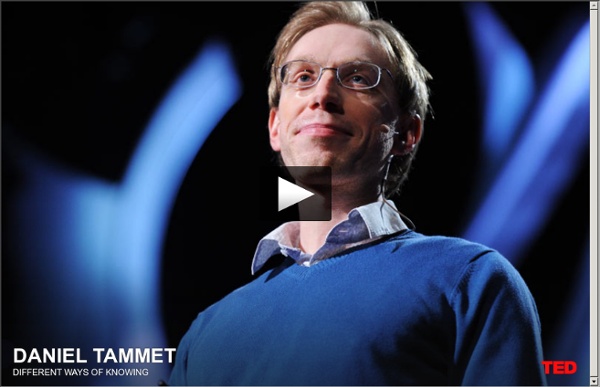



http://www.ted.com/talks/daniel_tammet_different_ways_of_knowing.html
Anki - friendly, intelligent flashcards Joël de Rosnay : À la découverte du Web 5.0 Joël de Rosnay est un biologiste français, d’abord spécialiste des origines du vivant et des nouvelles technologies, puis en systémique et en prospective. Après trois ans de recherche et d’enseignement au MIT, il fut directeur des applications de la recherche à l’Institut Pasteur, puis directeur de la prospective et de l’évaluation de la Cité des sciences et de l’industrie de La Villette. Il a créé AgoraVox en mai 2005 et préside actuellement une société de conseil. Joël de Rosnay, Docteur en Sciences, est Directeur de la Prospective et de l’Evaluation de la Cité des Sciences et de l’Industrie de la Villette.